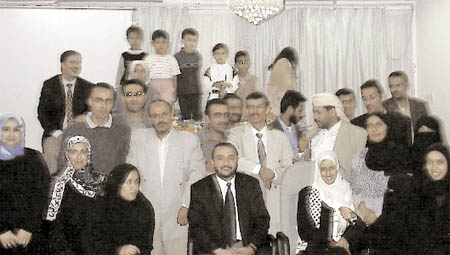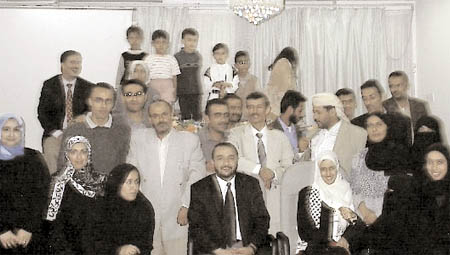
Learning how to manage projects [Archives:2002/42/Reportage]
October 14 2002

MOHAMMED AL-MASANI
YEMEN TIMES STAFF
How to beter manage projects relating to health, business and development was the theme of a 50-hour course recently taught to 25 trainees last week.
The Project Management Course concluded October 7 at the Yemen Times.
“Graduating from this 50-hour course, they will have become more professional and skilled at project management because they have applied what they have learned throughout the course,” said Dr. Jameel al-Anesi, workshop trainer.
The closing course was also attended by the Yemen Times Editor-in-Chief Dr. Waleed Abdulaziz al-Saqqaf, a representative from the German institution DED.
Among the course goals was to teach good project management in health and economic development sectors, how to provide job opportunities, and how to support micro-finance programs at grassroots level.
This includes supporting local initiatives in rural areas, in Ibb and Taiz within the framework of involving society in these fields, to help reduce poverty.
Dr. Mohammed al-Anesi talked about the main objectives of the course and noted, “This course was designed to equip the participants with practical skills of project management, which they can directly apply in their area of work. This course is a step-by-step process that begins with planning for the project in specific detail and goes through the different phases of project management.”
Participants were divided into work teams. Each team chose a project that was currently being implemented in one of the team member’s NGOs. The trainees then reconstructed that project starting with writing a problem statement for the situation.
Then, they set the project’s overall goal and objectives, defined the activities that should be carried out, and learned how to use several planning tools, such as the critical path method. After the planning phase, the trainees went over the phases of organization, implementation, monitoring, and finally project closing and evaluation.
Class discussions were very lively and the sessions contained many exercises including case studies and assessment questionnaires. This was in addition to outdoor fieldwork in which the trainees collected and analyzed information necessary to complete their work.
One of the main features of this course is to put the trainees in a realistic environment of developmental work. Also, it provides them with the opportunity of a closer and more critical look of what is being done, in order to assess and refine procedures that are already there in real life.
In addition, trainees were required to start their own project for scratch, in their teams and individually, to gain better experience.
The German DED began its cooperation with the local partners in Yemen on the basis of the signed agreement between Yemen and DED in 1979.
——
[archive-e:42-v:2002-y:2002-d:2002-10-14-p:./2002/iss42/report.htm]


